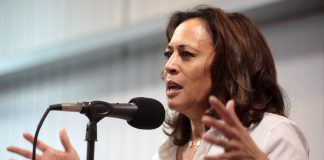Zohran Mamdani, the Democratic front-runner in New York City’s mayoral race, finds himself at the intersection of political ambition, identity, and controversy.
As the first Muslim candidate with a genuine chance to lead America’s largest city, Mamdani’s campaign has ignited a fierce debate over the boundaries of free speech, the politics of identity, and the fine line between criticism of Israel and accusations of antisemitism.
Mamdani, a 33-year-old Democratic Socialist, has garnered significant support among foreign-born New Yorkers and younger voters with his progressive platform. His policy proposals include ambitious plans to combat climate change, address housing affordability, and overhaul the city’s policing system. However, it is his outspoken criticism of Israel and support for the Boycott, Divestment, Sanctions (BDS) movement that have drawn national attention and controversy.
His remarks labeling Israel’s actions in Gaza as “genocide” and his vow to arrest Israeli Prime Minister Benjamin Netanyahu if he sets foot in New York City have been met with backlash from Jewish communities and political opponents. Over 650 American rabbis, including 121 from New York State, issued a letter denouncing Mamdani’s rhetoric and warning of increased hostility toward Jews.
Accusations of Antisemitism
In the face of these criticisms, Mamdani has vehemently denied accusations of antisemitism, arguing that his stance is a legitimate expression of opposition to Israeli policies and not an attack on Jewish people.
He has also refused to condemn the slogan “globalize the intifada,” a phrase many perceive as a call for violence against Jews, stating that he advises against its use but does not fully denounce it. In the immediate aftermath of the 7 October 2023 Hamas attacks, which resulted in the deaths and sexual assaults of hundreds of Israeli civilians, Mamdani posted on social media criticising Israeli “apartheid and occupation” rather than condemning the perpetrators.
Mamdani’s opponents, including former Governor Andrew Cuomo, Republican candidate Curtis Sliwa, and current Mayor Eric Adams, have seized upon these positions to accuse him of harboring antisemitic sentiments. Cuomo mocked Mamdani during a radio interview, laughing at the suggestion that Mamdani would “be cheering” if “another 9/11” happened.
In response, Mamdani has accused his critics of inciting Islamophobia, citing personal experiences of anti-Muslim bias affecting his family post-9/11. He shared an emotional story outside the Islamic Cultural Center of The Bronx, recounting how his aunt stopped taking the subway after the September 11 attacks because she did not feel safe wearing her hijab.
The controversy has not been confined to political discourse. Mamdani’s associations have also come under scrutiny. He has faced criticism for his past interactions with figures linked to controversial views, such as his homage to the Holy Land Five and his association with streamer Hasan Piker, who made inflammatory comments about 9/11. Critics argue that these associations raise questions about Mamdani’s judgment and his commitment to combating extremism.
Despite the backlash, Mamdani has maintained a commanding lead in the mayoral race, with recent polls showing him at 46% support, ahead of Cuomo at 33% and Sliwa at 15%. His campaign has resonated with voters seeking a progressive alternative to the establishment candidates, particularly among younger and immigrant communities.
Mamdani’s candidacy raises important questions about the boundaries of political expression and the intersection of identity and ideology. His critics argue that his positions cross the line from legitimate political discourse into territory that fosters division and hostility. Supporters contend that he is exercising his right to free speech and challenging policies they view as unjust.
The debate also highlights the complexities of identity politics in America. Mamdani’s dual identity as a Muslim and a critic of Israeli policies places him at the nexus of two sensitive and often contentious issues. His experiences with Islamophobia inform his worldview and political positions, but they also complicate his interactions with communities sensitive to criticism of Israel.
Zohran Mamdani’s mayoral campaign is more than a local election; it is a microcosm of the broader national debates over free speech, identity, and the politics of inclusion. As New York City approaches its mayoral election, voters will have to decide whether Mamdani’s progressive vision outweighs the controversies surrounding his statements and associations.
His candidacy challenges the city—and the nation—to confront difficult questions about the limits of political discourse and the complexities of identity in a multicultural society.
Main Image: – Own work
Zohran Mamdani’s Rise: Identity Politics, Israel, and the Future of New York City



